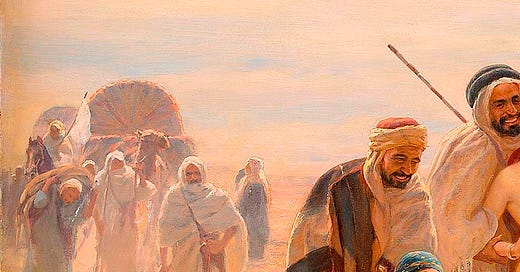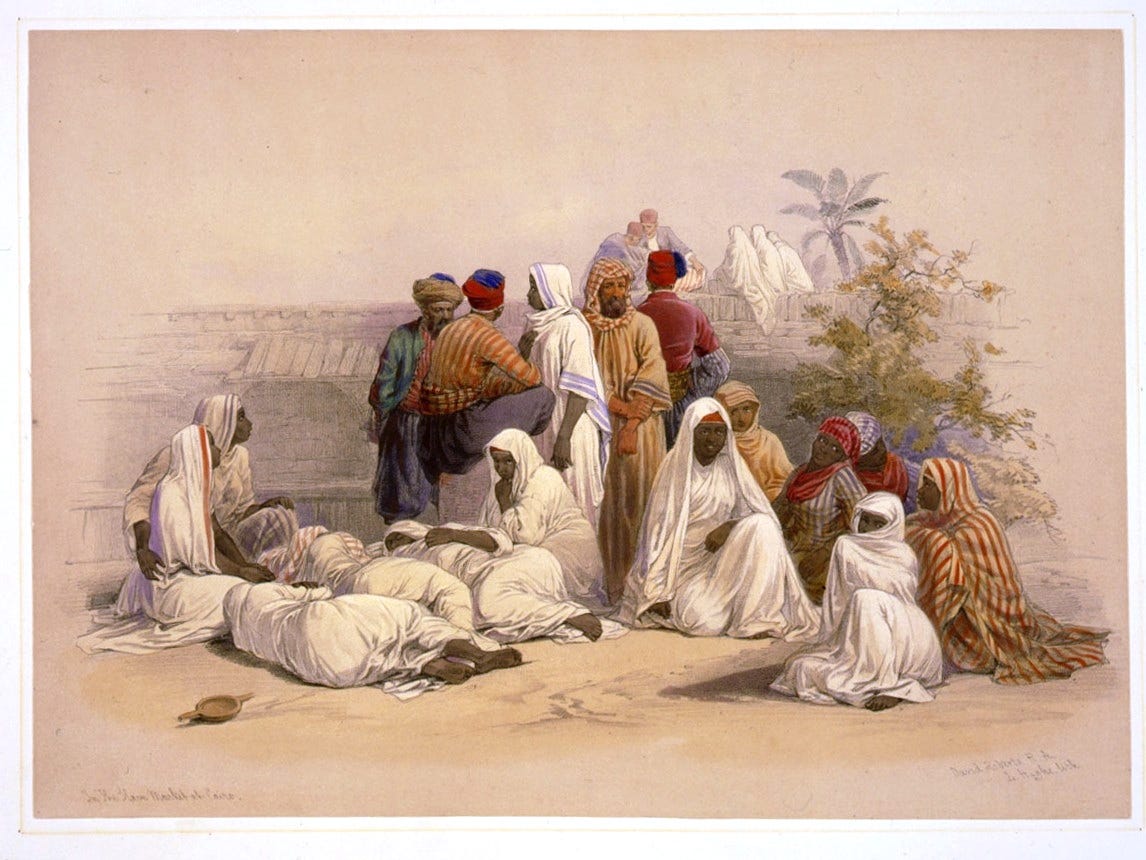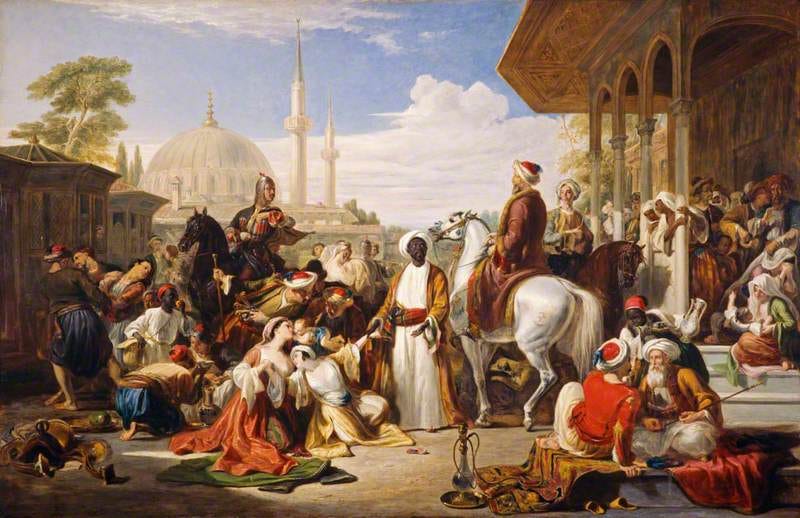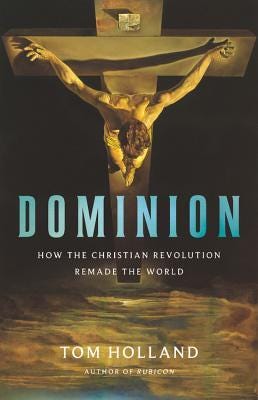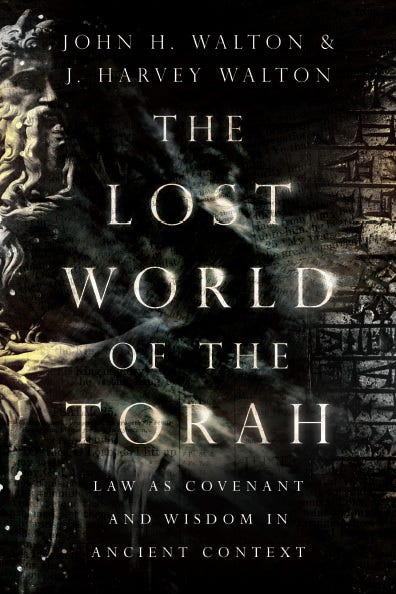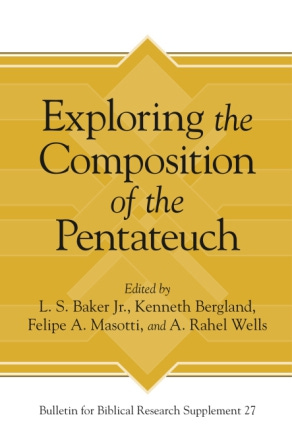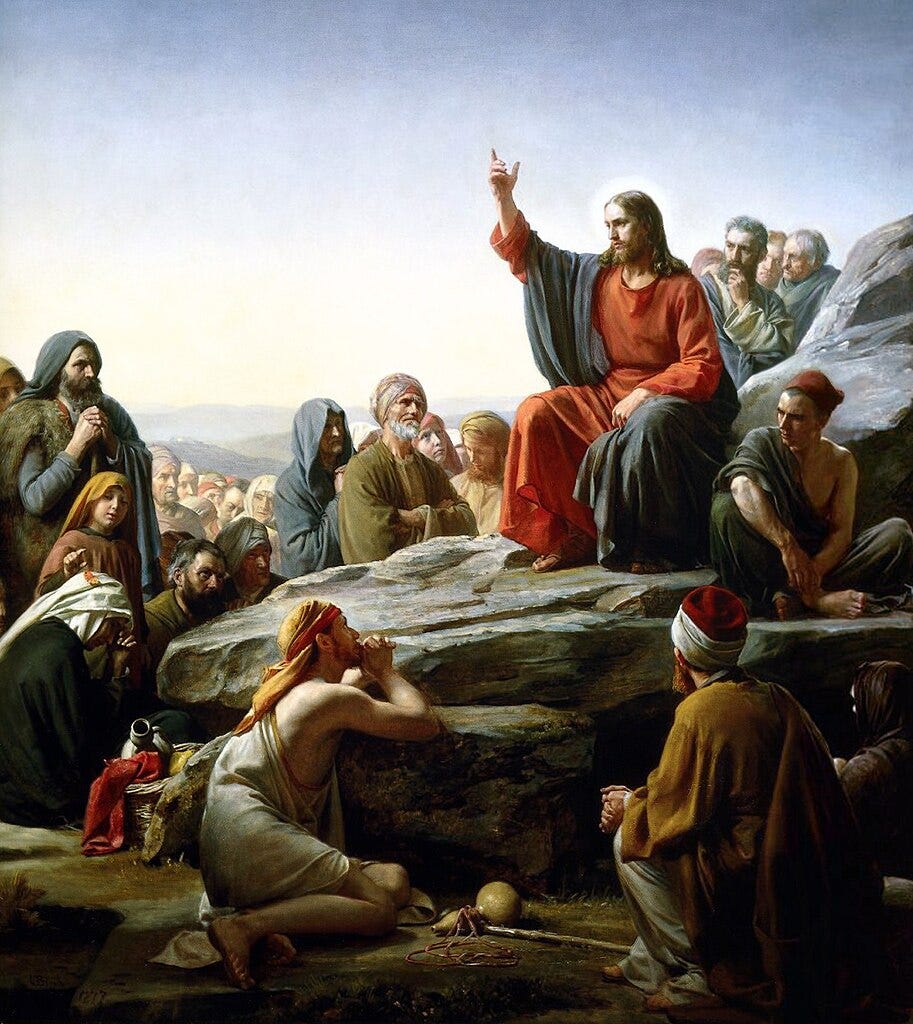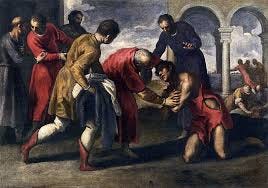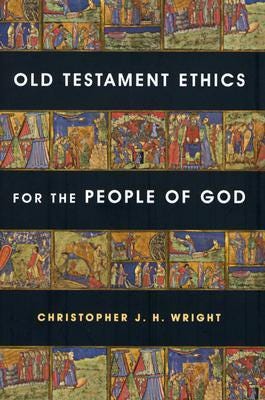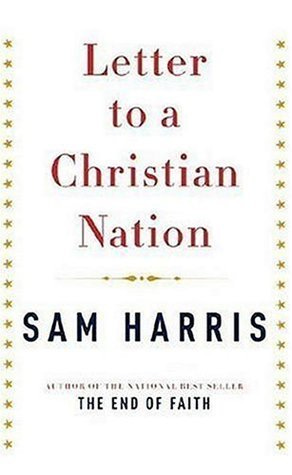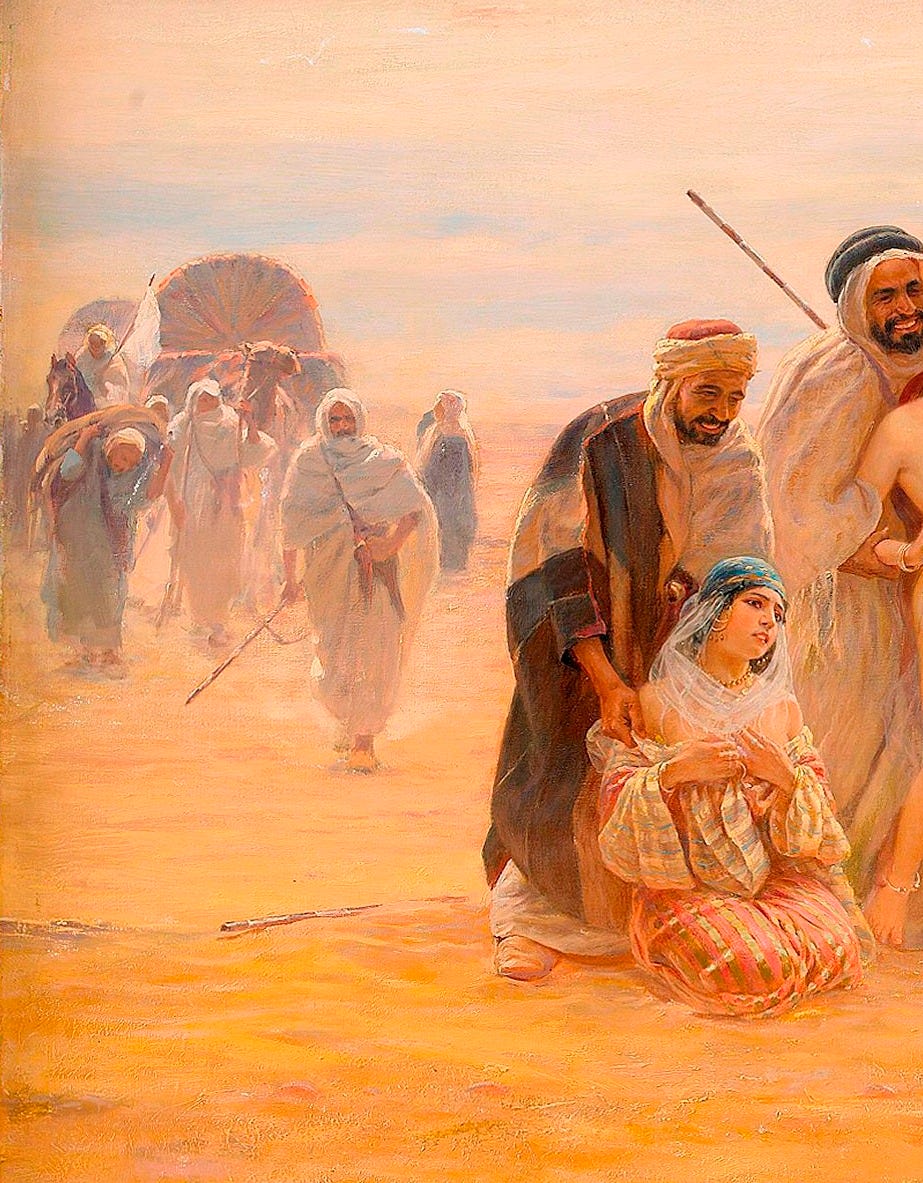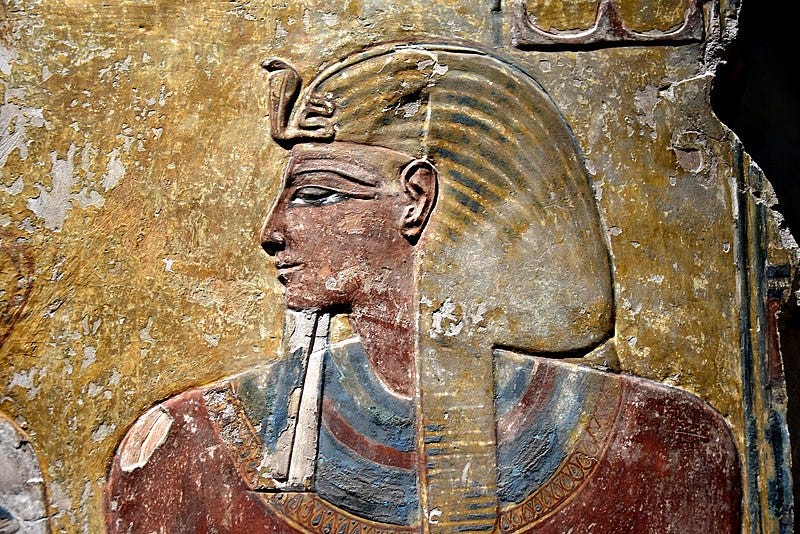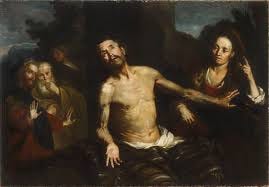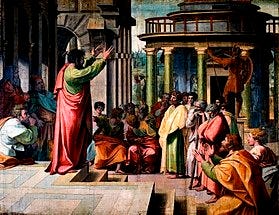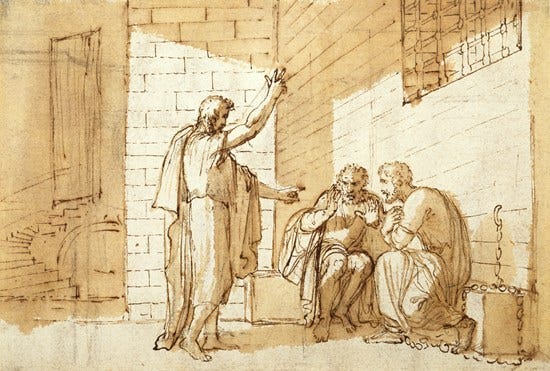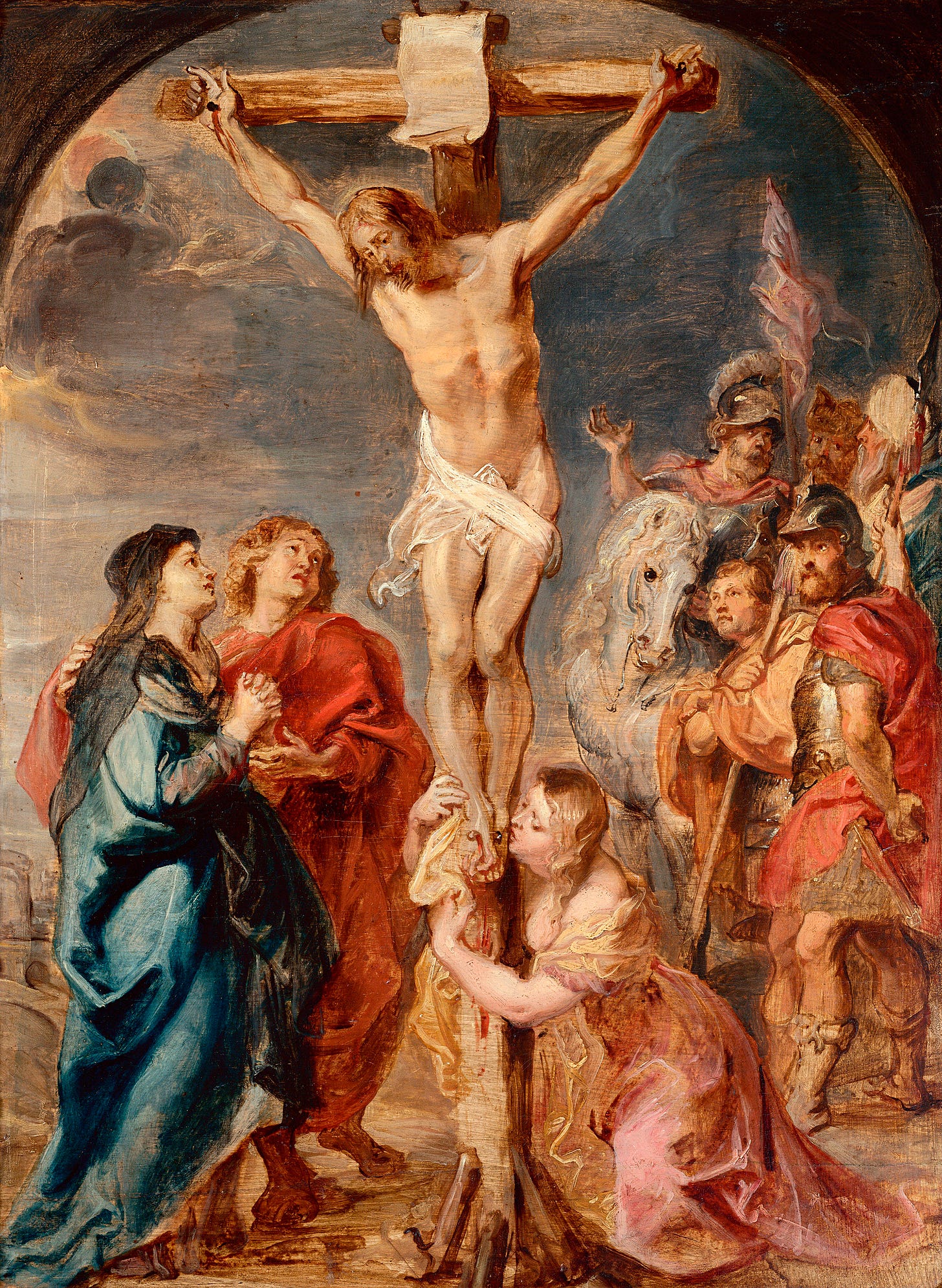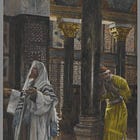SLAVERY and the Bible: Your Comprehensive Guide
25 Considerations on a MAJOR Objection to Christianity
Beating slaves until they can’t move for two days. Calling slaves money or property. Buying and selling foreigners. What is going on?
1. Basis for objective morality
2. Being aware of the baggage certain words carry
3. Why do you think slavery is wrong? It has a long history in many cultures
4. Permissive laws that place regulative limits on a broken system
5. In the image of God
6. The Bible’s ideal system is that no slaves exist
7. Love foreigners as you love yourself
8. Foreign slaves could escape from their masters with no punishment and would be offered protection among the Israelites
9. Stealing another human to sell them is punishable by death
10. You cannot harm your own servant
11. Challenging passages on foreign slaves- subsistence economy and temporary debt
12. Foreign slaves could take a break along with everyone else
13. Female captives in war- was rape encouraged?
14. Limits on slavery timeframes plus people who wanted to be slaves for life
15. Some servants were entitled to wages
16. Everyone was considered a slave or servant of someone- even the Egyptians under Pharaoh
17. Mistreating servants was considered a sin by Job
18. A foreign slave being treated as part of the community and marrying their master’s daughter
19. The servant who had servants
20. We are all of one blood
21. Jesus breaks down the master and slave hierarchy
22. The slave to be treated as a brother and not as a slave
23. Early Christians were a minority in the Roman world and were not in a position to change Roman law
24. A new identity- Jesus offers freedom to all who turn to him whether Israelites or not
25. Jesus becoming like a slave himself and the kissing campaign that followed
Find us on Medium.com
Or Twitter
https://twitter.com/StreetTheologn
Or our brand new Insta:
instagram.com/streettheologianapologetics/
Want to listen to this instead? Download the Substack App and subscribe to our publication: Street Theologian. Open the article from our Substack page and press the play button.
All Bible quotations are from the ESV unless noted otherwise.
The topic of slavery in the Bible is a hotly disputed issue. Christians on the one hand love to point out that the abolitionist movement had Christian roots founded on Christian values.
On the other hand, opponents of Christianity repeatedly allude to slavery passages in the Bible and insist the Bible endorses a chattel view of slavery as in the Transatlantic slave trade.
It often feels as if both sides are talking past each other. As Christians, we often fail to bring up the heaviest passages on this topic.
On the flip side, many sceptics can also take a narrow biased view on this topic without taking passages in context or taking an overall view of the Bible. Is there a way forward?
Today we will dispel some commonly alleged myths and provide a framework for thinking on these topics.
1. Basis for objective morality
A question anyone has to ask before considering something morally reprehensible is what their basis for objective morality is.
Is there any objective right and wrong if you are simply a bag of meat fizzing away to localised chemical reactions or if you exist solely for the four F’s (fighting, feeding, fleeing, reproducing)?
To have progress you need an objective benchmark. A crooked line is only crooked if a straight line exists. Whatever side of the fence you sit on, keep this in mind as we proceed on this topic.
2. Being aware of the baggage certain words carry
Certain words may or may not carry extensive baggage depending on the time in history you live in. We must be aware of our modern conceptions of slavery and how they might warp our understanding of substantially older texts.
The term slave does not refer to the exact same thing every time it is used. We have examples of chattel slavery on the extreme end where people were kidnapped and sold based on race.
A human nature issue
This tragically has taken place between whites and blacks under the TransAtlantic slave trade, Japanese and Chinese and Korean following various wars, Arabs and blacks under Islamic rule, Arabs and European whites under the reign of the Ottoman Empire, and on and on.
It has been a human nature problem through the centuries not strictly limited to any particular race or time.
In the present day, sex slavery is still prominent in various parts of the world.
However, in other instances, slavery has been more like temporary indentured servitude that offers a means by which a poor person can survive.
One could even make a case that debt is a form of slavery or bondage.
Old Testament v Roman World v New World
Cambridge scholar, Dr. Peter Williams outlines substantial differences between OT slavery, Roman slavery, and New World slavery.
Williams also notes the Hebrew word eved, translated as both slave and servant is not inherently negative and often related to work.
The use of the word slave over time
Williams illustrates the word slave is a lot more prominent in more modern translations compared to the use of the word servant which was more prominent in earlier translations.
Moreover, Williams demonstrates it is not uncommon for the word slave to be used in the context of slavery laws in some languages while servant can be used to translate the same root word when describing someone being a servant of God.
This can lead to some confusion over the meaning of the root word.
In some instances, for example, in Leviticus 25:42 in the RSV, the same Hebrew word is translated as both slave and servant within the same verse!
Here are a few charts and tables from Williams to emphasise the point:

3. Why do you think slavery is wrong? It has a long history in many cultures
Similar to point 1, ask yourself why you think slavery is wrong. Many cultures through time have had no objection to the practice of slavery.
Aristotle and living tools
Greek philosopher, Aristotle, referred to slaves in his work “The Politics” as “living tools.” “The slave is himself an instrument which takes precedence of all other instruments”
In Aristotle’s view, slaves were seen as lacking certain qualities, such as the ability to think properly, and were therefore in need of a master to guide them. He believed that natural slaves (those born with these limitations) would not know how to run their lives without a master and that slavery was beneficial for them.
Is it perhaps because of the Christian foundations of the abolitionist movement that you think chattel slavery is wrong? Are your views on morality really as secular as you think?
Tom Holland and Dominion
According to Tom Holland in Dominion: How The Christian Revolution Remade The World, the Christian concept of human dignity and equality, rooted in the idea that all humans are created in God’s image (Genesis 1:26-27), played a crucial role in shaping the abolitionist movement.
Holland argues that abolitionists like William Wilberforce and Thomas Clarkson drew heavily from Christian theology to justify their opposition to slavery. They saw slavery as a violation of the biblical command to treat others with kindness and respect (e.g., Leviticus 19:18, Matthew 22:39), and as a rejection of the inherent dignity and worth of all human beings, regardless of race or social status.
The “Hidden” Christian Influence
Holland contends that the profound Christian influence on the abolitionist movement has been largely overlooked or underestimated. He suggests that even those who rejected Christianity or saw themselves as secular thinkers were, in fact, operating within a cultural and intellectual framework shaped by Christian ideas.
The Air We Breathe
A fish doesn’t ask what water is. Similarly, we pay little attention to the air we breathe. On this note, Glen Scrivener, in The Air We Breathe, contends much of “the air we breathe” or our values on equality, justice, and moral progress have deeply rooted Christian origins.
According to Scrivener, the abolitionist movement’s emphasis on personal responsibility, moral agency, and social justice, can be seen as an application of Christian principles, such as loving one’s neighbour and caring for the vulnerable (Matthew 25:31-46).
With all this context in mind, let’s get our hands dirty and investigate passages concerning slavery in the Bible.
4. Permissive laws that place regulative limits on a broken system
The fact laws regarding slavery are mentioned does not mean this is God’s perfect moral ideal. Rather, the law is often presented as working within broken and barbaric systems to enhance God’s name among the nations.
Better laws than anyone else at the time?
In Deuteronomy 4:5-8, Moses challenges the Israelites:
See, I have taught you statutes and rules, as the Lord my God commanded me, that you should do them in the land that you are entering to take possession of it. 6 Keep them and do them, for that will be your wisdom and your understanding in the sight of the peoples, who, when they hear all these statutes, will say, ‘Surely this great nation is a wise and understanding people.’ 7 For what great nation is there that has a god so near to it as the Lord our God is to us, whenever we call upon him? 8 And what great nation is there, that has statutes and rules so righteous as all this law that I set before you today?
Evidently, the law was laid down to enhance God’s name among the nations.
How could Moses claim the law he set down by God’s power was greater than anything that existed at the time? We’ll make some comparisons later!
The Torah taught Israel to trust and depend on YHWH and demonstrated what it would look like to enhance YHWH’s name in their cultural background.
Law as covenant
In books such as The Lost World of the Torah: Law as Covenant and Wisdom in Ancient Context by John Walton and Covenant: The History of a Biblical Idea by Delbert Hillers, scholars make the case that the Torah takes the form of a suzerain-vassal treaty. This would involve a king taking another nation as a vassal.
Because of your hardness of heart
The Torah contains concessions for stiff-necked people (Ex. 32:9; Deut. 9:13; Neh. 9:16).
Notice what Jesus says in an encounter with the Pharisees on divorce in Matthew 19:3-8:
And Pharisees came up to him and tested him by asking, “Is it lawful to divorce one's wife for any cause?” 4 He answered, “Have you not read that he who created them from the beginning made them male and female, 5 and said, ‘Therefore a man shall leave his father and his mother and hold fast to his wife, and the two shall become one flesh’? 6 So they are no longer two but one flesh. What therefore God has joined together, let not man separate.” 7 They said to him, “Why then did Moses command one to give a certificate of divorce and to send her away?” 8 He said to them, “Because of your hardness of heart Moses allowed you to divorce your wives, but from the beginning it was not so.
In other words, God’s law (eg. Deut 24:1 for divorce) was factoring in the hardness of heart of the individuals the covenant was created with.
Permissive law
Williams explains God’s law can be permissive, working within broken systems to bring regulative boundaries. In other words, regulating something rather than claiming it is an ideal.
Incrementalism and accommodation
Two other concepts important to consider are incrementalism and accommodation. Incrementalism involves making small, gradual changes while accommodation involves factoring in where someone is at to begin with as part of bringing about change.
Richard Averbeck, for example, in Exploring the Composition of the Pentateuch, contends Deuteronomy 15:12-18 updates stipulations concerning the treatment of slaves in Exodus 21:2-11. He adds, “It simply adds a feature to the law that is in keeping with the theology of Deuteronomy. Yes, there is revision here, but not subversion (p.40).”
Divorce is not God’s ideal
Malachi further illustrates how divorce is not God’s ideal.
Malachi 2:16 (MEV):
For the Lord, the God of Israel, says that He hates divorce; for it covers one’s garment with violence, says the Lord of Hosts. Therefore take heed to your spirit, that you do not deal treacherously.
Laws concerning kings even though having a king was not God’s ideal
In a similar fashion in 1 Samuel 8, the people of Israel come before God asking for a king. God suggests this is not a good idea (v.7) but allows it anyway (v.22).
Deuteronomy 17:14-20 contains laws for a king governing the people of Israel even though we know this is not God’s ideal!
Daughters of Zelophedad
Moreover, in Numbers 27, the daughters of Zelophedad point out their father had no male heir. They do not want their inheritance taken from them so they bring this issue in front of Moses and God then allows this teaching into the Torah.
Numbers 27:5-7 reads:
5 Moses brought their case before the Lord. 6 And the Lord said to Moses, 7 “The daughters of Zelophehad are right. You shall give them possession of an inheritance among their father's brothers and transfer the inheritance of their father to them.
Is God’s law concerned with oxen?
Paul encourages readers to look at the deeper principles of the law rather than just get caught up in a strictly modern legal approach.
In 1 Corinthians 9:9, he expresses:
For it is written in the Law of Moses, “You shall not muzzle an ox when it treads out the grain.” Is it for oxen that God is concerned?
The law is perfect?
Some will respond with Psalm 19:7 which states that the law of the Lord is perfect. Context is important here. First, the Psalms use poetic language.
Second, the law was perfect in what it set out to accomplish and that did not include setting a perfect moral ideal for all time as per our other points. It was perfect in what it set to do in the culture and context it was delivered.
Sermon on the Mount
Jesus builds on and gets to the heart of the law in the New Testament in places such as the Sermon on the Mount. In the Sermon on the Mount, Jesus challenges people to be perfect (no one can be, which is why we need Jesus).
Jesus deepens the understanding of the likes of adultery and murder as outlined in the law, challenging the state of people’s hearts. Jesus says “You have heard that it was said but I say to you” and proceeds to warn of the grave dangers of lust and hate (Matt. 5:21-28)..
Why do this if a perfect moral ideal was already established?
Moreover, John Goldingay translates Psalm 19:7 as “YHWH’s teaching has integrity, restoring life (Baker Commentary on Old Testament Wisdom and Psalms, 661).” A similar word is used to describe Noah being perfect in his generation in Gen. 6:9.
Culturally situated foundation
The Torah was a culturally situated foundation for bringing people back toward God.
Dr. John Walton in the Lost World conference in September 2019, contends, “Torah is not given as an ideal system. It is a culturally situated system. What would bring enhancement to the reputation of YHWH among the nations of the ancient Near East? That explains why we do not find in the Torah any discussion of is it a good thing to have slaves. Those aren’t issues on the table in the ancient world… It’s telling them how to live in the system that exists in their day. There’s no discussion on whether democracy may be a more humane government than monarchy.. God was trying to tell them how to live without reproach in the systems that existed.. So we don’t have to worry about this slam against Christianity and the Bible.. Oh a God who condones slavery.. He’s working in a culture, not in an ideal world.”
5. In the image of God
As highlighted by Holland and Scrivener, we must not understate the transformative impact of a worldview that deems humans as being made in the image of God (Gen. 1:26-27). This emphasises the inherent dignity and worth of all human beings, regardless of their social status or circumstances.
6. The Bible’s ideal is that no slaves exist
Even in the Torah, we see hints that God’s ideal is that no one would be a slave.
Deuteronomy 15:4-5:
But there will be no poor among you; for the Lord will bless you in the land that the Lord your God is giving you for an inheritance to possess— 5 if only you will strictly obey the voice of the Lord your God, being careful to do all this commandment that I command you today.
In other words, in a world of perfect obedience to God, there would be no slavery.
Echoing this point, Micah 4 looks forward to a time when God restores His kingdom on earth. In such a world, everyone sits under his own vine and his own fig tree. There is no such thing as slavery.
Micah 4:4:
but they shall sit every man under his vine and under his fig tree,
and no one shall make them afraid,
for the mouth of the Lord of hosts has spoken.
7. Love foreigners as you love yourself
Leviticus 19:33-34 does not allow for a race-based hierarchy.
It reads:
“When a stranger sojourns with you in your land, you shall not do him wrong. 34 You shall treat the stranger who sojourns with you as the native among you, and you shall love him as yourself, for you were strangers in the land of Egypt: I am the Lord your God.
Deuteronomy 10:18-19 expresses a similar idea:
He executes justice for the fatherless and the widow, and loves the sojourner, giving him food and clothing. 19 Love the sojourner, therefore, for you were sojourners in the land of Egypt.
In the ancient Near East, such a view was extremely radical.
How would you hope to be treated if you sold yourself?
In Leviticus 25:47, we see an instance of where an Israelite would hope to be treated well as a slave whereby they would sell themselves to a rich foreigner if they became poor themselves. “If a stranger or sojourner with you becomes rich, and your brother beside him becomes poor and sells himself to the stranger or sojourner with you or to a member of the stranger's clan.”
The same way an Israelite would have hoped to be treated by a foreign owner in that context should be how an Israelite owner would treat a foreign slave.
How Leviticus 19:33-34 prohibits mistreatment of foreigners
Leviticus 19:33-34 explicitly prohibits mistreatment of foreigners (aliens) living among the Israelites, commanding them to treat these strangers with the same respect and dignity as native-born citizens. This biblical instruction:
Rebukes the notion of slavery as a natural or divinely ordained institution: By mandating equal treatment of foreigners, Leviticus 19:33-34 rejects the idea that some people are inherently inferior or destined for servitude.
Emphasises the shared human experience: The passage reminds the Israelites that they, too, were once strangers in Egypt, highlighting the common humanity and vulnerability that unites all people, regardless of their national origin or status.
Establishes a moral imperative for hospitality and compassion: Leviticus 19:33-34 sets a high standard for treating foreigners with kindness, respect, and love, underscoring the importance of empathy and generosity towards those who are different or marginalised.
In contrast to the myth of slavery as a natural or divinely ordained institution, Leviticus 19:33-34 presents a vision of humanity as interconnected and deserving of dignity and respect, regardless of their circumstances or national origin.
8. Foreign slaves could escape from their masters with no punishment and would be offered protection among the Israelites
Adding to point 7 where the Israelites were expected to treat foreigners how they would hope a foreigner would treat them, foreign slaves were offered the opportunity to escape from their masters with no punishment.
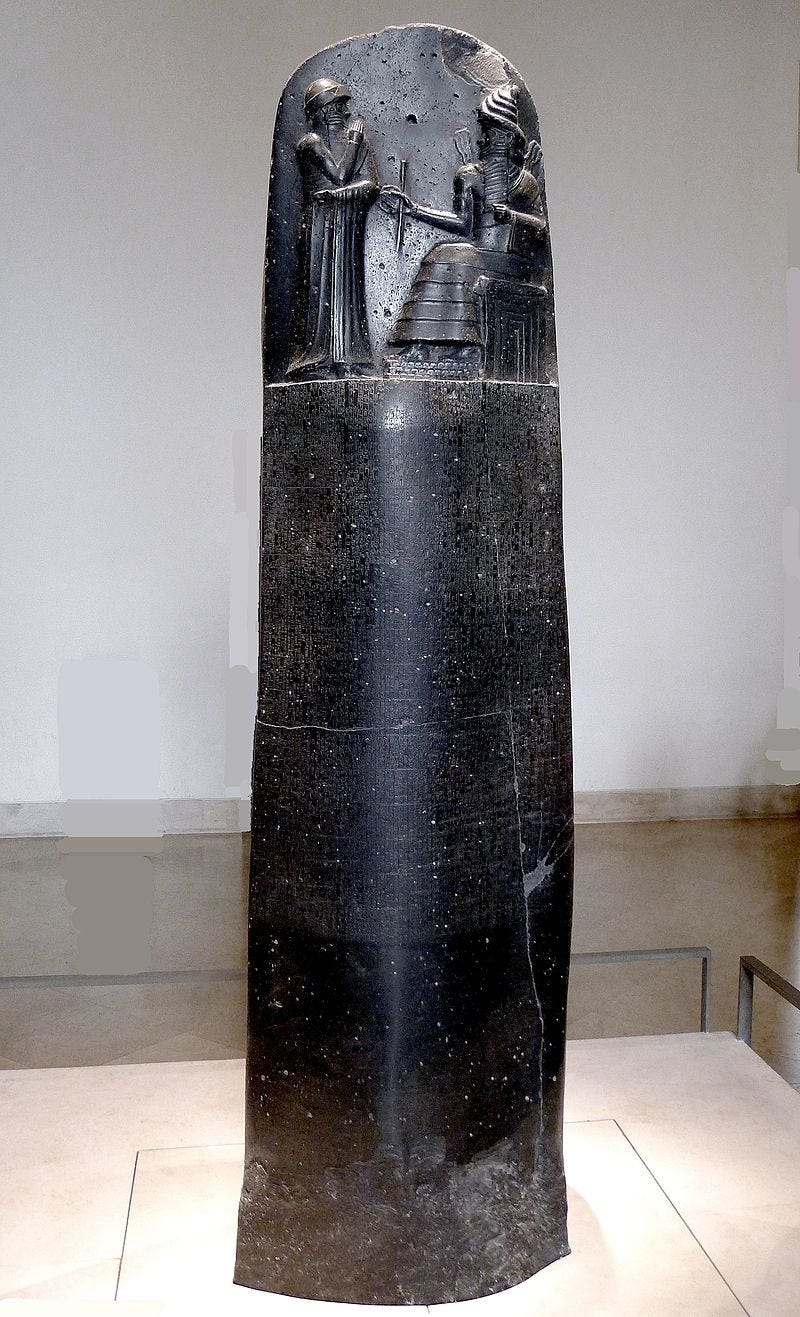
This served as a protective mechanism in an abusive master-slave relationship where the slave was not treated with dignity.
Deuteronomy 23:15-16:
“You shall not give up to his master a slave who has escaped from his master to you. 16 He shall dwell with you, in your midst, in the place that he shall choose within one of your towns, wherever it suits him. You shall not wrong him.
Deuteronomy 23:15-16 explicitly prohibits the return of escaped slaves to their masters, instead allowing them to live among the Israelites wherever they choose. Note here, slaves are:
Granted refuge: The law provides a safe-haven for slaves who have escaped their oppressive situations, demonstrating a concern for their well-being and protection.
Avoid forced return: The commandment explicitly prohibits handing over fugitive slaves to their masters, indicating a rejection of the institution of slavery and its inherent power imbalance.
Offered autonomy: By allowing them to choose their own residence, the passage recognises the agency and autonomy of these individuals, contradicting the fundamental principles of slavery as 21st-century humans would think of it.
In essence, Deuteronomy 23:15-16 presents a moral and legal framework that undermines the legitimacy of slavery, emphasising the importance of compassion, justice, and human dignity.
Even though in the law, foreign slaves were not automatically freed in the year of jubilee or on a Sabbath year, passages such as Deuteronomy 23:15-16, enabled foreign slaves to leave their masters at any time if they were mistreated.
Paul Copan provides three reasons why a foreign slave would be in view in Deuteronomy 23:15-16: no use of the term brother or neighbour, Israelites could not enslave other Israelites according to Leviticus 25 and foreign slaves could choose which land they wanted to live in unlike the Israelites living in lands allotted to their lands.
Compare Deuteronomy 23:15-16 to the Code of Hammurabi. Law 17 states:
“If any one finds runaway male or female slaves in the open country and brings them to their masters, the master of the slaves shall pay him two shekels of silver.”
In other words there is a reward for bringing back runaway slaves!
9. Stealing another human to sell them is punishable by death
Exodus 21:16 is another passage that debunks anti-Christian portrayals of slavery in the Bible.
Exodus 21:16: “Whoever steals a man and sells him, and anyone found in possession of him, shall be put to death.
This verse offers a strong condemnation of what we would commonly call slavery, highlighting its inherent injustice and brutality. Slave trading is an abomination to God.
Consequently, 1 Timothy 1:10 in the New Testament lists enslavers among those who will not inherit the kingdom of God.
Exodus 21:16 does not say whoever steals as Hebrew but whoever steals a man. There is no distinction here between Israelites and foreigners.
10. You cannot harm your own servant
Slaves were to be treated with dignity. Harming a slave is the same as harming a human.
Exodus 21:26-27: “When a man strikes the eye of his slave, male or female, and destroys it, he shall let the slave go free because of his eye. 27 If he knocks out the tooth of his slave, male or female, he shall let the slave go free because of his tooth.
This debunks a common misinterpretation of an earlier verse.
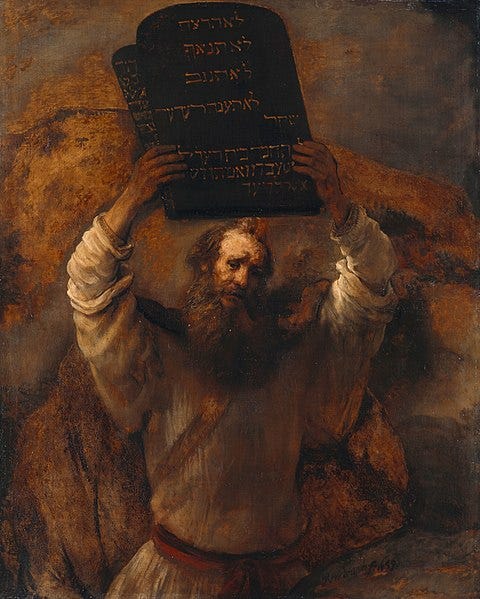
A favourite of critics of Christianity- Exodus 21:20-21
Sceptics love to quote Exodus 21:20-21:
“When a man strikes his slave, male or female, with a rod and the slave dies under his hand, he shall be avenged. 21 But if the slave survives a day or two, he is not to be avenged, for the slave is his money.
Does this imply you can beat a slave as much as you want as long as they don’t die? Despite what many critics suggest, Exodus 21:26-27, illustrates this is not the case.
You cannot harm your own servant. Causing a slave physical harm immediately freed a slave from their master. Again, this is nothing like chattel slavery.
Why then the talk of the rod?
In the cultural context, the rod was intended as a disciplinary mechanism. Exodus 21 regulates or restricts the scope for abuse in these settings (remember our point on permissive law). The purpose in mind was correction not abuse or a violent beating.
Again and again, the Israelites are told not to wrong a sojourner or oppress them (Ex. 22:21, Ex. 23:9).
You can hurt anything except an eye or a tooth?
Some will retort that only an eye or tooth is in view in Exodus 21:26-27, however, this completely misses the point.
The Torah is not structured like a modern law code, laying out an exhaustive list of every single way you can harm a slave to cause them to go free. Rather, the Torah lays out principles.
The Code of Hammurabi- cutting off the ear of disobedient slaves
By contrast, in the 18th century BC Babylonian Law Code, the Code of Hammurabi, Law 282, “If a slave says to their master, “You are not my master,” the master shall cut off the slave’s ear.”
It is no wonder Jewish scholar, Nahum Sarna in Exploring Exodus: The Origins of Biblical Israel, explains “This law- the protection of slaves from maltreatment by their masters- is found nowhere else in the entire existing corpus of ancient Near Eastern legislation (p.124).”
Christopher Wright in Old Testament Ethics for the People of God, adds, “No other ancient Near Eastern law has been found that holds a master to account for the treatment of his own slaves (as distinct from injury done to the slave of another master), and the otherwise universal law regarding runaway slaves was that they must be sent back, with severe penalties for those who failed to comply (p.292).”
Perhaps that is why Moses confidently asserted that the Israelites had a better law code than the surrounding nations in Deuteronomy 4:8.
The slave owner’s money or property?
You might wonder how this can be the case when Exodus 21:21 refers to a slave as being a slave owner's property. Here is the verse again:
“When a man strikes his slave, male or female, with a rod and the slave dies under his hand, he shall be avenged. 21 But if the slave survives a day or two, he is not to be avenged, for the slave is his money.
Kaiser, who authored the Expositor’s Bible commentary on Exodus, notes, this “is literally ‘because he is his money.’ The point is not that men are mere chattel… but that the owner has an investment in this slave that he stands to lose either by death… or by emancipation.”
Walton emphasises Exodus 21:21 does not imply a permanent or inherent status of slavery. Rather, it reflects the slave’s current condition as a means of debt redemption. The slave is considered the owner’s property until the debt is paid, at which point they are freed.
The “for or because clause” principle
Cambridge scholar, Dr. Peter Williams adds to this in his explanation of the “for clause” principle. For the “slave is his money” means something very different from how we would automatically interpret it. Williams explains:
“Because this man has an investment in this worker, we are to presume the person’s innocence of intention to actually damage his own investment. That’s what it’s saying. It’s not saying because he owned them he could do what he liked.”
Williams uses the example of a passage that assumes a woman’s innocence in a rape case. The woman, because, or for, she was approached by a man in the open country and subsequently complained to the judge is assumed to be innocent. In the open country, a woman’s testimony trumps the man’s testimony because she is telling the judges what happened (Deut. 22:25-27).
In a similar fashion, it is assumed a man would not intentionally hurt his slave, for the man has an investment in his worker.
With this context in mind, slaves have nearly identical treatment to a normal human (in v.18-19) and the only difference is that it is assumed if a slave owner strikes his slave it is unlikely to be intentional for the slave is his investment. Whereas, if one man strikes in a different setting this cannot be assumed to be the case.
Exodus 21:18-19: “When men quarrel and one strikes the other with a stone or with his fist and the man does not die but takes to his bed, 19 then if the man rises again and walks outdoors with his staff, he who struck him shall be clear; only he shall pay for the loss of his time, and shall have him thoroughly healed. 20 “When a man strikes his slave, male or female, with a rod and the slave dies under his hand, he shall be avenged. 21 But if the slave survives a day or two, he is not to be avenged, for the slave is his money.
Also note, Exodus 21:33-22:15, details laws concerning animals and physical property. Slaves are not included in this section.
11. Challenging passages on foreign slaves- subsistence economy and temporary debt
Many people in the modern world live beyond their means by taking on debt. In the ancient world, if you could not provide for yourself from your asset base, the options were very different.
Williams explains:
“What we're dealing with in many situations is debt slavery or servitude. You're in a subsistence economy, there's no economic surplus and you run out of everything. How are you going to persuade your neighbour to give you something to eat? Well, of course, they might do so based on their own mercy because the law has commanded them to be merciful. But if they don’t the only thing you can do is pledge your future work in exchange for a meal today and of course many of us would do that if we were in that situation.”
Even marriage involves a transfer of money in such a context.
There is no explicit evidence of salesmen acting as merchants for humans in the law.
Hence, the context of the buying and selling of slaves in Leviticus 25, is not referring to kidnapping or slave trading.
Sports players are bought, sold, and traded but they are not subhuman
In a similar fashion to how we don’t think sports players are subhuman for being bought, sold and traded, context is critical in interpreting this passage.
Another favourite passage of critics- Leviticus 25:44-46
Sam Harris in Letter to a Christian Nation quotes Leviticus 25:44-46 as a particularly heinous passage:
As for your male and female slaves whom you may have: you may buy male and female slaves from among the nations that are around you. 45 You may also buy from among the strangers who sojourn with you and their clans that are with you, who have been born in your land, and they may be your property. 46 You may bequeath them to your sons after you to inherit as a possession forever. You may make slaves of them, but over your brothers the people of Israel you shall not rule, one over another ruthlessly.
On its own, without further context, this passage can appear highly disturbing. However, we need to interpret terms in their relevant context.
The next verse provides insight into what is going on
Verse 47 demonstrates what selling yourself could look like in such a context:
“If a stranger or sojourner with you becomes rich, and your brother beside him becomes poor and sells himself to the stranger or sojourner with you or to a member of the stranger's clan, 48 then after he is sold he may be redeemed. One of his brothers may redeem him.
In other words, selling yourself offers a way out of extreme poverty. It was more like taking on indentured servitude. This wasn’t about kidnapping or forced trading.
Stealing humans is punishable by death, slaves could escape without consequence and you must treat a foreigner how you would want them to treat you.
Remember, stealing humans was punishable by death (Ex. 21:16), slaves could escape at any time without consequence (Deut. 23:15-16) and the Israelites were urged to treat foreigners how they would hope a foreigner would treat them (Lev. 19:33-34).
Leviticus 25:44-46 is about providing opportunity and food to the poor who otherwise would have no means to live.
What about being a possession forever, you might ask?
Again, context is critical. While there were no firm limits set on the time foreign slaves would serve, in the way that Israelites would be freed in the year of jubilee or Sabbath years, Walton emphasises indentured servitude was often temporary.
In fact, in the case where someone is described as being a slave forever this is according to the slave’s choice (Ex. 21:6- although this refers to a Hebrew slave).
Given slaves could escape at any time, were not to be oppressed, humans could not be stolen to be sold, and indentured servitude offered a way out of poverty that slaves willingly chose, this passage is not in its context binding slave family lines to hundreds of years of abuse.
12. Foreign slaves could take a break along with everyone else
Foreign slaves would have a rest once a week, along with the Israelites.
Deut. 5:13-14: Six days you shall labor and do all your work, 14 but the seventh day is a Sabbath to the Lord your God. On it you shall not do any work, you or your son or your daughter or your male servant or your female servant, or your ox or your donkey or any of your livestock, or the sojourner who is within your gates, that your male servant and your female servant may rest as well as you.
13. Female captives in war
Another favourite of critics- Deut. 21:10-14
While we are on the topic of foreign slaves, let’s look at Deuteronomy 21:10-14 concerning female captives.
“When you go out to war against your enemies, and the Lord your God gives them into your hand and you take them captive, 11 and you see among the captives a beautiful woman, and you desire to take her to be your wife, 12 and you bring her home to your house, she shall shave her head and pare her nails. 13 And she shall take off the clothes in which she was captured and shall remain in your house and lament her father and her mother a full month. After that you may go in to her and be her husband, and she shall be your wife. 14 But if you no longer delight in her, you shall let her go where she wants. But you shall not sell her for money, nor shall you treat her as a slave, since you have humiliated her.
Rape was a common practice in ancient Near Eastern societies during times of war.
The Iliad
In Homer’s Iliad, Nestor threatens Achaean Greek soldiers with death if they don’t “properly” conquer Troy, implying the rape of Trojan women (Iliad 2.354-359). Similarly, Polybius describes Roman forces practicing conquest rape, making it a standard condition for female war captives.
Gang rape of Greek women
Herodotus recounts the gang rape of Greek women to death by Persian soldiers, while Diodorus Siculus portrays Greek women and youths being raped by Carthaginians as a prelude to captivity.
Rape as a victory move in neolithic societies
In neolithic societies, rape was a common practice, often accompanied by the killing of other men from the opposing tribe and the forced incorporation of women into the victor’s group.
By contrast, this passage offers tremendous protection to women who in their cultural context would have otherwise been raped and treated as the lowest of the low. Again, the law is not setting a perfect moral ideal but is regulating practices within a barbaric society.
Note:
Rape is prohibited: A man cannot sleep with a war captive unless they are married.
The woman is given time to mourn
The woman is unable to be sold
The woman is unable to be treated as a slave but as a wife
If the man seeks a divorce the woman is allowed complete freedom to go where she wants
The woman is protected by marriage in a society that would otherwise have degraded and disregarded her
Again, context is everything.
14. Limits on slavery timeframes and people who wanted to be slaves for life
In Exodus 21:2-6, Hebrew slaves are enabled to go free without debt in the seventh year. However, if they choose they can remain slaves for the rest of their life (Ex. 21:6).
The fact people would even entertain such an idea reflects how different the context is of Hebrew slavery compared to modern world slavery.
Leviticus 25:39-40 reflects a similar theme:
“If your brother becomes poor beside you and sells himself to you, you shall not make him serve as a slave: 40 he shall be with you as a hired worker and as a sojourner. He shall serve with you until the year of the jubilee.
By contrast, foreign slaves were not granted freedom in the year of jubilee. However, these slaves could escape at any time with no punishment (Deut. 23:15-16).
Moreover, as Walton notes, slavery was often like indentured servitude that included a pre-defined end date agreed between the master and the slave.
A further thing to note is during the year of jubilee, Hebrew slaves would return to their ancestral property (Lev. 25:41) but foreign slaves would not have been part of the Israelite land-tenure system.
Slavery offered a way out of extreme poverty for foreigners and could also provide a way out for impoverished Hebrews who sold themselves to foreign masters (Ex. 25:47).
15. Some servants were entitled to wages
Hebrew servants were entitled to wages in addition to being provided for during their time as a servant.
Deuteronomy 15:12-14 reads:
If your brother, a Hebrew man or a Hebrew woman, is sold to you, he shall serve you six years, and in the seventh year you shall let him go free from you. 13 And when you let him go free from you, you shall not let him go empty-handed. 14 You shall furnish him liberally out of your flock, out of your threshing floor, and out of your winepress. As the LORD your God has blessed you, you shall give to him.
This mirrors Leviticus 25:40 where a brother is to be treated as a hired hand.
16. Everyone was considered a slave or servant of someone- even the Egyptians under Pharaoh
This provides context to the Torah that is often missed.
Pharaoh had servants other than the Israelites. Williams notes, that in the ancient Near East even the king was a servant, a servant of deity.
Genesis 50:7
So Joseph went up to bury his father. With him went up all the servants of Pharaoh, the elders of his household, and all the elders of the land of Egypt,
In Genesis 47, the Egyptians willingly make themselves slaves (avadim is the plural of eved) of Pharaoh.
Genesis 47:23-26:
Then Joseph said to the people, “Behold, I have this day bought you and your land for Pharaoh. Now here is seed for you, and you shall sow the land. 24 And at the harvests you shall give a fifth to Pharaoh, and four fifths shall be your own, as seed for the field and as food for yourselves and your households, and as food for your little ones.” 25 And they said, “You have saved our lives; may it please my lord, we will be servants to Pharaoh.” 26 So Joseph made it a statute concerning the land of Egypt, and it stands to this day, that Pharaoh should have the fifth; the land of the priests alone did not become Pharaoh's.
It is no wonder the Israelites call themselves Pharaoh’s servants when they are trying to get on his good side in Exodus 5.
Exodus 5:15-17:
Then the foremen of the people of Israel came and cried to Pharaoh, “Why do you treat your servants like this? 16 No straw is given to your servants, yet they say to us, ‘Make bricks!’ And behold, your servants are beaten; but the fault is in your own people.” 17 But he said, “You are idle, you are idle; that is why you say, ‘Let us go and sacrifice to the Lord.’
Ultimately, God wanted to save the Israelites in order for them to serve him instead of Pharaoh.
Exodus 4:22-23:
Then you shall say to Pharaoh, ‘Thus says the Lord, Israel is my firstborn son, 23 and I say to you, “Let my son go that he may serve me.” If you refuse to let him go, behold, I will kill your firstborn son.’”
17. Mistreating servants was considered a sin by Job
Job in Job 31:13-15 recognises the seriousness of mistreating a servant.
If I have rejected the cause of my manservant or my maidservant,
when they brought a complaint against me,
14 what then shall I do when God rises up?
When he makes inquiry, what shall I answer him?
15 Did not he who made me in the womb make him?
And did not one fashion us in the womb?
Notice, Job:
Acknowledges the legitimacy of slaves’ claims and demands for fair treatment.
Emphasises the importance of just treatment.
Highlights the inherent dignity and value of all people, regardless of social status or condition, rooted in the biblical concept of humans being created in God’s image.
Implies a moral obligation for masters to treat slaves with fairness, compassion, and respect.
Again this is nothing like New World slavery.
18. A foreign slave being treated as part of a community and marrying their master’s daughter
In 1 Chronicles 2, Sheshan has no son and treats an Egyptian slave like a fellow countrymen and offers him his daughter in marriage. This would be unheard of in New World slavery.
1 Chronicles 2:34-35:
Now Sheshan had no sons, only daughters, but Sheshan had an Egyptian slave whose name was Jarha. 35 So Sheshan gave his daughter in marriage to Jarha his slave, and she bore him Attai.
19. The servant who had servants
In 2 Samuel 19, servants had their own servants! In other words, being a servant carried a lot more privileges than is the case in chattel slavery.
2 Sam. 19:16-17:
And Shimei the son of Gera, the Benjaminite, from Bahurim, hurried to come down with the men of Judah to meet King David. 17 And with him were a thousand men from Benjamin. And Ziba the servant of the house of Saul, with his fifteen sons and his twenty servants, rushed down to the Jordan before the king.
20. We are all of one blood
Paul, is his speech to Greek philosophers, purported we are all of one blood.
Acts 17:26 (MEV):
He has made from one blood every nation of men to live on the entire face of the earth, having appointed fixed times and the boundaries of their habitation.
This demonstrates the shared humanity and equality of all people. There is no basis for boasting about one’s bloodline or family heritage or treating others as inferior due to their background.
21. Jesus breaks down the master and slave hierarchy
Slaves are not to be treated as inferior humans in Galatians 3. Christ breaks down all barriers and societal divides.
Galatians 3:28-29:
There is neither Jew nor Greek, there is neither slave nor free, there is no male and female, for you are all one in Christ Jesus. 29 And if you are Christ's, then you are Abraham's offspring, heirs according to promise.
22. The slave to be treated as a brother and not as a slave
A remarkable story on slavery in the Bible that often gets forgotten in these conversations is the story of Philemon. Onesimus is a runaway slave who escaped from his master Philemon.
In a manner that subverts the cultural expectations of the time, Paul urges Philemon to treat Onesimus as a beloved brother in Christ and no longer as a slave.
Practically illustrating the transformative nature of the good news of Jesus, Paul claims he will bear the cost for any wrong Onesimus did to Philemon. Likewise, Jesus bore the cost for our sin in our place.
Philemon 15-19:
For this perhaps is why he was parted from you for a while, that you might have him back forever, 16 no longer as a bondservant but more than a bondservant, as a beloved brother—especially to me, but how much more to you, both in the flesh and in the Lord.
17 So if you consider me your partner, receive him as you would receive me. 18 If he has wronged you at all, or owes you anything, charge that to my account. 19 I, Paul, write this with my own hand: I will repay it—to say nothing of your owing me even your own self.
23. Early Christians were a minority in the Roman world and were not in a position to change Roman law
Sceptics will frequently ask why the authors of the New Testament didn’t speak against slavery as an institution.
The Gospel message subverts slavery by starting with the heart of the individual.
Christianity starts with the soul of the individual and how one can be made right before God.
Political reform was not the primary concern, nor a realistic goal at the time.
Moreover, Christians were a very very small minority in the Roman world and would be unable to introduce principles that overrode Roman law to society at large.
Christians could not change the legal system.
Slaves who rebelled would be executed.
Moreover, as Williams notes there were limits to the emancipation of slaves.
The Lex Fufia Caninia (2 BC) limited only 2 of 3, half of 4 to 10 or a third of 11-30 slaves from being freed.
Under the Lex Aelia Sentia (4 AD) slaves under 30 couldn’t be freed without a legal procedure.
Moreover, a slave manumitted under 30 could never be a citizen.
As such, asking Christian slaves to rebel against their masters would have led to disastrous consequences in the immediate context.
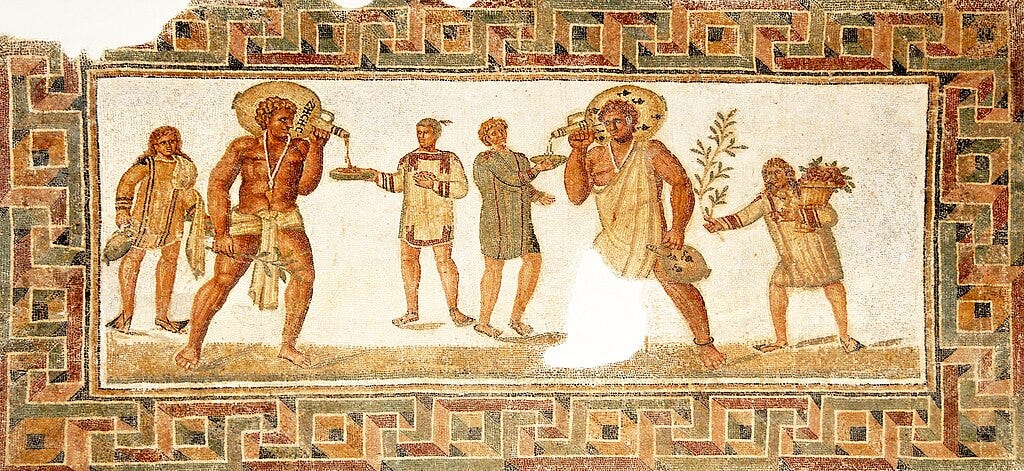
24. A new identity- Jesus offers freedom to all who turn to him whether Israelites or not
Earlier we read how the jubilee year would offer freedom to Israelites but not to foreigners as they were not part of the Israelite land-tenure system.
However, in Jesus, those who are aliens and far off from the commonwealth of Israel are brought near (Eph. 2:12-13). He offers freedom to slaves of sin through his truth (John 8:31-33).
One’s fundamental identity changes even if they are a human slave. Their ultimate master is Christ.
1 Corinthians 7:21-23:
Were you a bondservant when called? Do not be concerned about it. (But if you can gain your freedom, avail yourself of the opportunity.) 22 For he who was called in the Lord as a bondservant is a freedman of the Lord. Likewise he who was free when called is a bondservant of Christ. 23 You were bought with a price; do not become bondservants of men. 24 So, brothers, in whatever condition each was called, there let him remain with God.
25. Jesus becoming like a slave himself and the kissing campaign
How did Jesus save people? By becoming the lowest of the low. By facing an excruciating humiliating death. Outcast. Marginalised. Downtrodden.
1 Peter 2:18-25, parallels Jesus to a slave who is oppressed for doing good.
Ephesians 6:9 demonstrates God shows no preference or partiality to masters over servants and masters should not act in a threatening way:
Masters, do the same to them, and stop your threatening, knowing that he who is both their Master and yours is in heaven, and that there is no partiality with him.
It is Jesus’ work on the cross that provides the grounds for human masters to be transformed and treat their servants according to what is right and equal (Col. 4:1).
The kissing campaign
This led to what Williams describes as a kissing campaign. People from all different classes of society and races would greet one another with a holy kiss in Christ (Rom. 16:16, 1 Cor. 16:20, 2 Cor. 13:12, 1 Thess. 5:26, 1 Peter 5:14) .
Williams explains in the Roman context this was totally scandalous. A slave would not kiss a master nor a Jew a Gentile. This was turning the social hierarchy upside down. In Christ, the existing social barriers in Roman society are broken down.
Jesus and the oppressed
Jesus met the depths of humanity’s darkness on the cross.
The God of the Bible is not distant but goes to the very deepest parts of our pain and evil.
The free became oppressed to free the oppressed.
Will you take the freedom you are being offered in Christ to free you from the enslaving burden of your own sin?
Find us on Medium.com
Or Twitter
https://twitter.com/StreetTheologn
Or our brand new Insta:
instagram.com/streettheologianapologetics/

